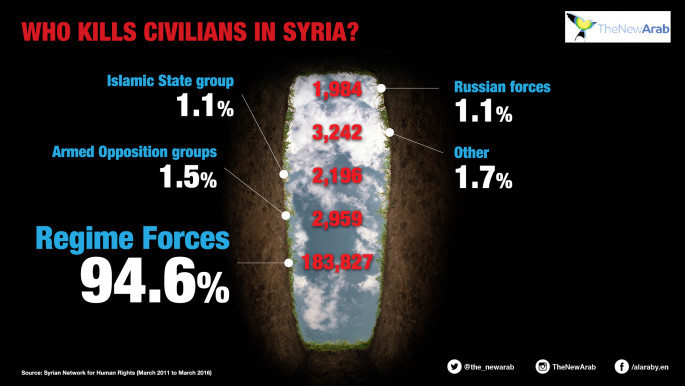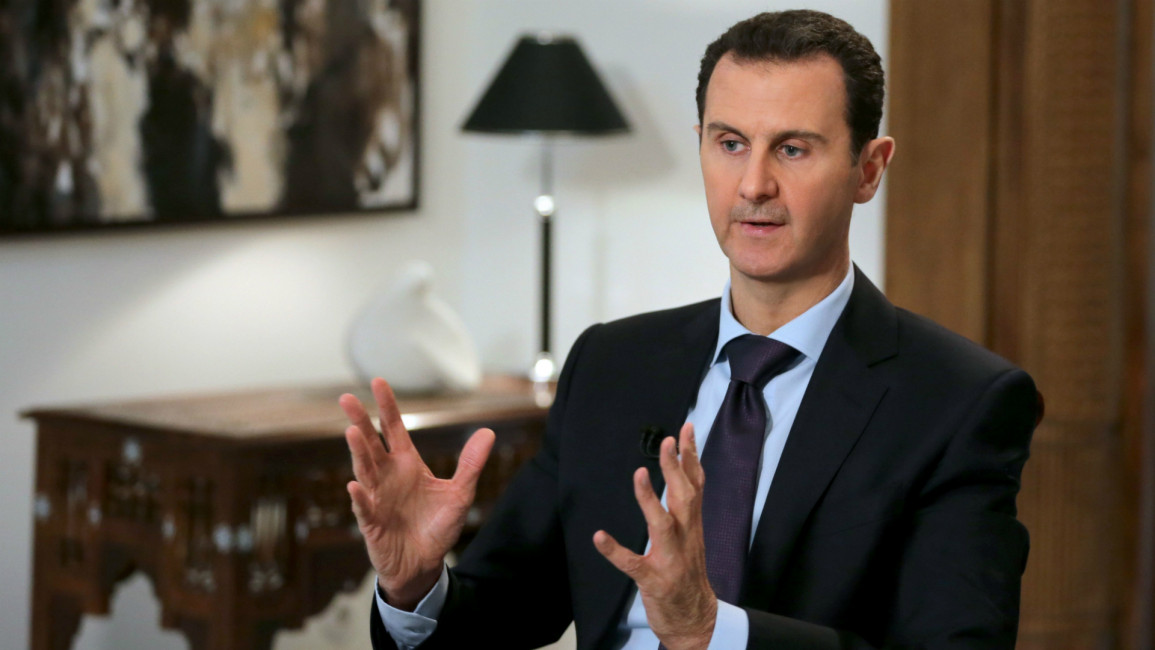Bashar al-Assad blames US for collapse of Syria truce
He denied US accusations that Syrian or Russian war planes targeted an aid convoy in the Aleppo suburb of Urum al-Kubra on Monday night, which marked the end of a brief truce to a war which has cost 400,000 lives.
The leader of the Syrian regime also used an interview with AP to dismiss claims that pro-regime forces were preventing food from entering the besieged opposition districts of East Aleppo.
Despite rebukes from the US and UN, he claimed that his side was "committed to any halt of operations, or if you want to call it ceasefire", despite overwhelming evidence to the contrary.
Ceasefire
It came as US diplomats were working hard at a UN meeting to get Russia to help pressure Damascus to commit to another truce.
While it has been firmly established by human rights groups, international bodies, and the media that regime planes were almost certainly to blame for the end of the ceasefire, Assad would refused to admit to these accusations.
He said the US was guilty of breaking the ceasefire which came into place on the 12 September.
Assad blamed the "mistaken" bombing of Syrian army positions by US-led coalition war planes in Deir az-Zour last week for the failure of the truce.
He also alleged that the US was not committed to working with Russia with joint military operations against the Islamic State group and Jabhat Fateh al-Sham, al-Qaeda's former affiliate in Syria.
"The United States does not have the will to work against al-Nusra or even IS, because they believe this is a card they can use for their own agenda. If they attack al-Nusra or IS, they will lose a very important card regarding the situation in Syria."
However, US-led coalition war planes are largely viewed as taking out much of the IS' leadership and infrastructure.
Washington says that few Russian or regime air raids have been against IS, and instead almost all target moderate rebel groups, and particularly opposition civilian areas.
Syria and the US have been at loggerheads since the 17 September attack in Deir az-Zour, a province in Eastern Syria.
After the US airstrike - the first on Syrian army forces since the conflict began - in which more than 60 Syrian troops were killed IS militants briefly overran regime positions in the area.
 |
Every country has mistakes, every government has mistakes. When you have a war, you have more mistakes. When you have a war you have more mistakes. That's the natural thing. - Syrian President Bashar al-Assad |
 |
Commenting on tragic events in the bombing of an aid convoy in Urum al-Kubra on Monday night the Syrian president denied Syrian and Russian culpability.
These were "lies, and let's just say bubbles", he claimed despite mounting evidence that his forces were guilty of this "war crime".
'No idea'
Assad said he had "no idea what happened" while also claiming that the attack had occurred in territory controlled by opposition groups that he referred to as "terrorists".
The embattled president also denied accusations that his regime was responsible for war crimes by targeting civilian populations with banned munitions including barrel bombs and gas.
"Every country has mistakes, every government has mistakes. When you have a war, you have more mistakes. When you have a war you have more mistakes. That's the natural thing. But the accusations have no foundations regarding Syria," Assad said in another comment critcised as being out of touch with reality.
 |
| (Click here to enlarge) |
"When they talk about barrel bombs, what are barrel bombs? You kill terrorists in order to defend civilians."
Speaking about the situation in opposition-controlled East Aleppo, Assad also denied the area was under siege by his forces and that Damascus had denied aid groups access.
"If there really was a siege around the city of Aleppo people would have been dead by now. How can they be starving while at the same time they have armaments?" he claimed.
"How can we prevent the food and the medical aid from reaching the area and we cannot stop the armaments from reaching that area, which is not logical?"
Since the collapse of the Russian-US brokered truce on Monday night fighting has resumed on all major battle fronts in Syria's war, now entering its sixth year.
Later on Thursday, Russia and the United States are set to co-chair a meeting of the 23-nation International Syria Support Group in a desperate bid to salvage the ceasefire.
According to the United Nations approximately 400,000 people have died in Syria's civil war.
Statistics from the London-based Syrian Observatory for Human Rights estimate the Syrian regime is responsible for 94.6 percent of all civilian deaths due to bombing, shelling, sniper fire, and sieges.



